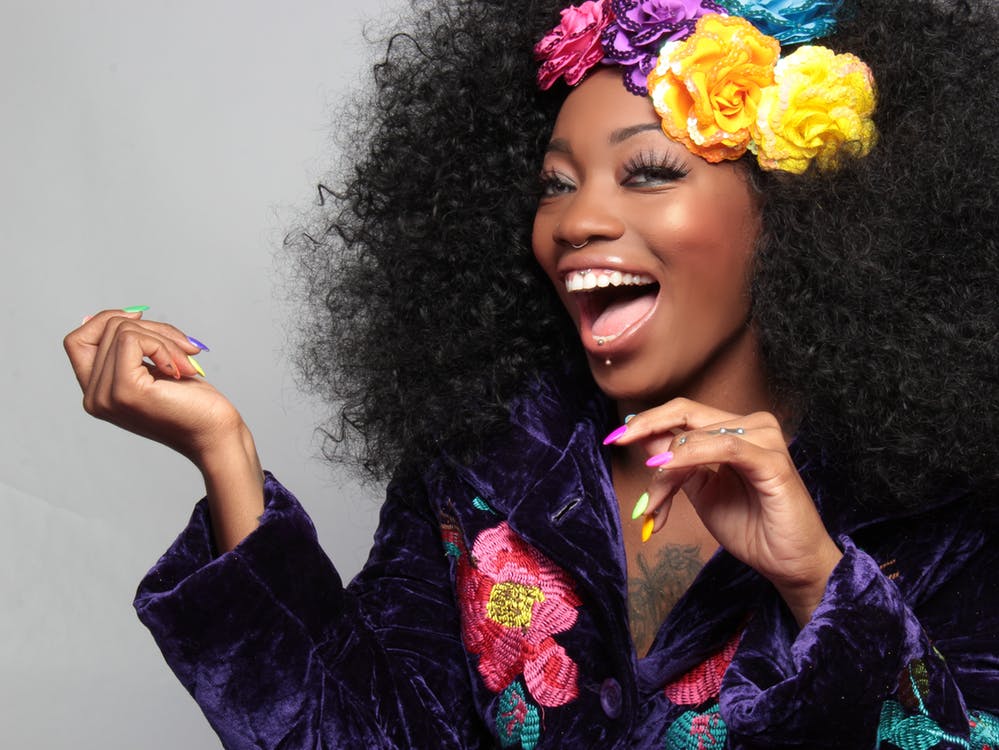Janelle Anastasia Wallen-Charles | Contributor
Featured image: We shouldn’t feel different or ashamed, and instead, feel liberated and proud. | Courtesy of Pexels
Society has painted black beauty as “ugly.” It has been imprinted into the minds of little black girls that wearing their natural, kinky curls is something to be ashamed of. We’ve hidden this shame under countless straightening until our hair starts to break off; we spend hundreds of dollars investing in long 18-inch Brazilian hair because we want to meet society’s demands. This is ruining young black girls’ psyche, because our “kinky curls” are considered “not pretty.”
I spoke with entrepreneur Jacintha Wallen-Charles, and I asked her if little girls are taught to be ashamed of their curls. “Not only society, but the black community itself. It’s small things that we don’t recognize, like ‘you should sleek back your edges,’ or ‘what are you going to do with that hair?’,” she says.
“Having baby hairs in its natural form is frowned upon by other black girls, because it is seen as ‘not doing your hair.’ Moreover, people of other races often look at our hair and ask: ‘What are you going to do with it?’ as if its natural state isn’t adequate enough to wear in public.”
I remember when I got my first weave—it was an Onyx, 18-inch, straight, 1B. When I strutted down the aisle, about to graduate, with my weave sewn into my head, I felt beautiful. I no longer felt uncertainty. It gave me an identity. They called me a weava-diva! I could get any colour, style, and length.
Weaves allow black women to feel beautiful; it allows us to hide from what we were given with. Ask a black woman if she’d rather wear her natural kinky curls or a Tokyo Stylez, custom made, 20-inch, Indian Remy hair, and see what she says.
The thing is, we have become so comfortable in the shell that we’ve grown up in, that it gets harder to break out of it.
I spoke with a fellow employee, Jaya Hance, a black woman who often wears her hair straight. I’ve never seen her hair in it’s natural, kinky state, so I asked her why. “When I was growing up, I was moved from a mixed-culture school to a pure white school, and they didn’t understand my different hair. Because of this they made me feel different, and always pointed it out. This little boy even told me my hair looked like poop,” she says.
Even if we come from different ethnicities, there should be a boundary where parents should teach their children right from wrong—and they don’t. Due to the bullying, Hance felt ashamed to wear her hair in natural braids, or out in an afro.
We have been criticized by the media, by society and even by our peers. But now the media, society and our peers want to take credit for African beauty and culture. Let me educate everyone. When Miley Cyrus started wearing what many called “Space Buns,” it got a lot of hype.
These Space Buns, however, are actually called Bantu knots, a hairstyle said to originate from Zulu tribes in southern Africa. When the Kardashians started donning what everyone called “Boxer Braids,” it became a hot new trend. Boxer braids are called Cornrows, and have been found in Stone Age paintings in the Tassili Plateau of the Sahara, dating as far back as 3,000 B.C., particularly in the Horn of Africa and West Africa.
These hairstyles are not new fashion trends that Miley Cyrus and the Kardashians came up with out of the blue. It shows the twisted way that, on a black girl, it’s seen as ugly—but on a famous white person’s head, it’s seen as trendy and new.
How are they going to look down on black beauty, then try to take credit for it? The problem is giving recognition to black women who’ve had these styles forever. Don’t rob us of that recognition. Don’t rob our culture from us.
Black women have started to become comfortable without the wigs, sewn-in weaves, and the constant straightening, because we’ve realized that we are beautiful; that we should not care about society’s opinions.
Wallen-Charles stated Viola Davis and Lupita Niyong’o, who are both Oscar-winning black actresses, show their natural hairstyles on the red carpet with confidence. We are seeing the beauty of the curls. We shouldn’t feel different nor ashamed, and instead, feel liberated and proud.


